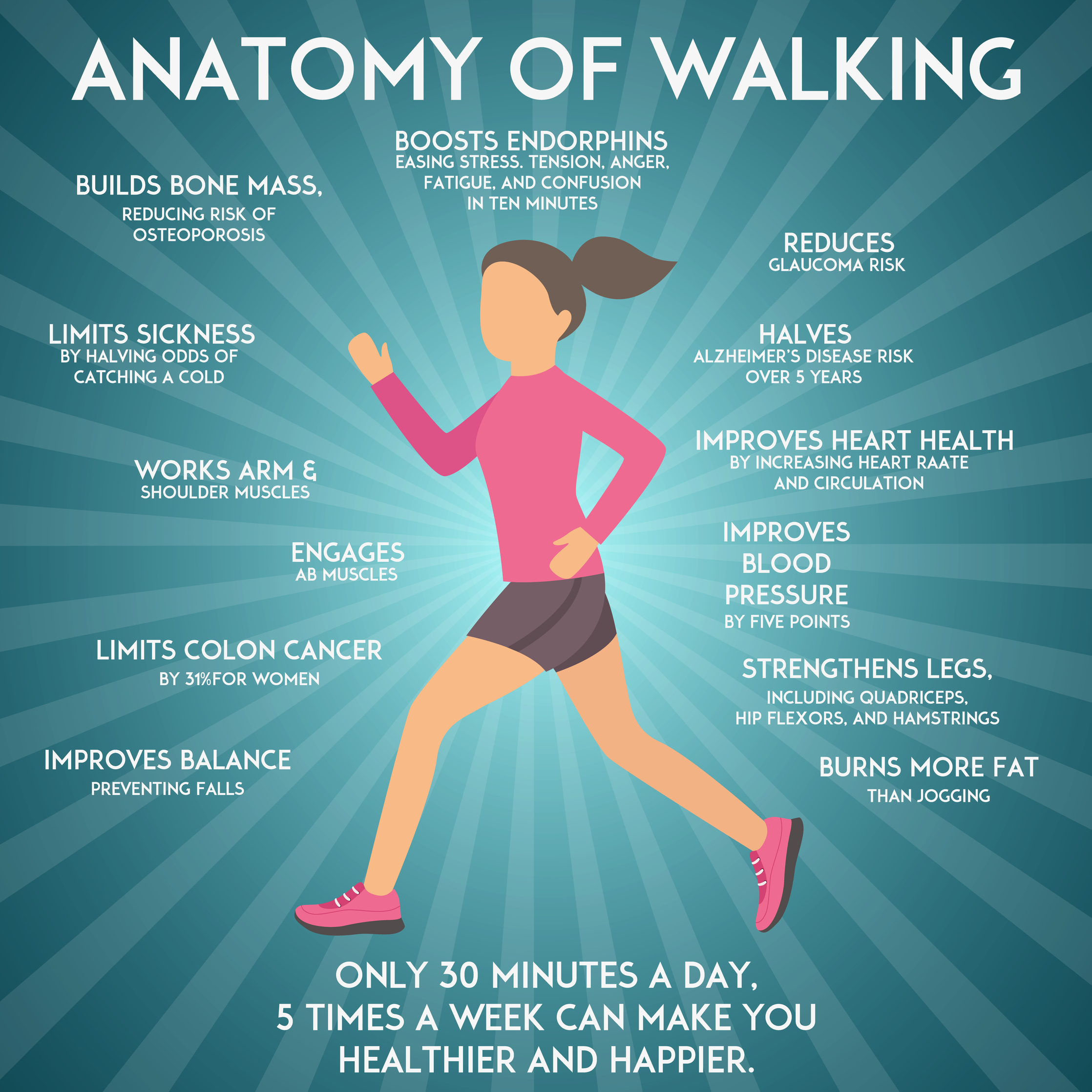Greetings to you,
Walking is very beneficial to many aspects of our health and well-being. Check out the chart below for the top ones and read on for all the details. Studies show that walking can increase energy, strengthen the heart, relax stiff joints, boost one’s immunity, create better muscle tone in the legs and also burn calories.
When we walk, the brain becomes stronger and one’s mood is lifted – setting the stage for creative ideas; the body’s lung capacity increases and oxygen is better provided to all the tissues; one’s digestion and metabolism improves; circulation is increased in the eyes which can prevent eye diseases and improve vision.
Regarding a sounder, deeper sleep resulting from taking walks, studies at the University of Arizona have found that walking more than six blocks a day at a normal pace significantly improves sleep at night for women.
Scientists suspect that walking helps to set our biological clock into a consistent sleep pattern. Walking can also help increase “endorphins”, which are protein-like chemicals made in the brain that can have a relaxing effect, a pain-relieving effect, and can also reduce stress and increase well-being.
Exercise such as walking may also be one of the most effective ways to reduce menopause symptoms such as hot flashes, night sweats, insomnia, and heart symptoms, according to a study from the Annals (Journal) of Behavioral Medicine.
For those of us who work in an office, its important to stand up and stretch and take breaks to walk around at least once an hour to keep things moving and healthy in the body. These walking breaks are important for muscle and bone health, as well as for the heart and other organs. Better yet, go outside and get a new, refreshing view of things before settling back down to work.
See the chart below. Go out and have some fun with your walks. Walk with friends. Try to go out on different routes and see different things. You’ll be glad you did!
Best of health,
Jobee Knight
Nutrition Breakthroughs
Maker of the Effective Natural Sleep Aid Sleep Minerals II
Walking is very beneficial to many aspects of our health and well-being. Studies show that walking can increase energy, strengthen the heart, relax stiff joints, boost one’s immunity, create better muscle tone in the legs and also burn calories.
When we walk, the brain becomes stronger and one’s mood is lifted – setting the stage for creative ideas; the body’s lung capacity increases and oxygen is better provided to all the tissues; one’s digestion and metabolism improves; and circulation is increased in the eyes which can prevent eye diseases and improve vision.
Physical activity recommendations say that Americans should walk for 30 minutes a day – five days per week. For younger adults, this can be brisk walking and for older ones, there should be a five minute warm-up and some smooth, unstrained walking for 10 to 15 minutes more or whatever is comfortable.




